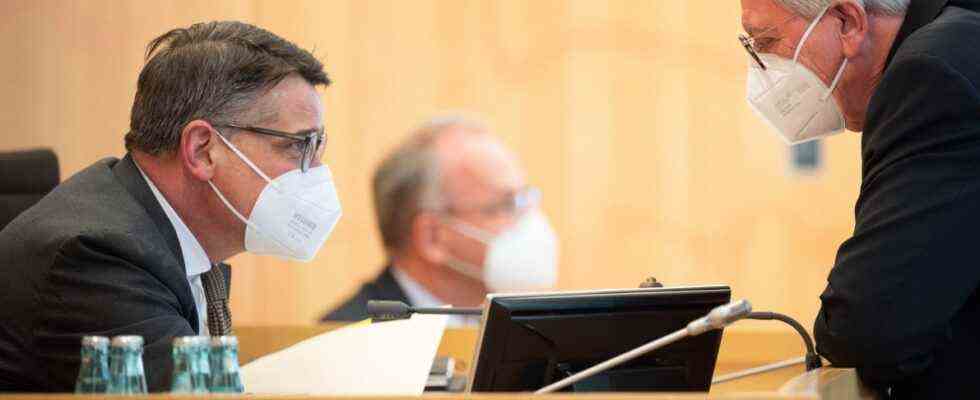The Hessian Prime Minister Volker Bouffier (CDU) has announced his early retirement. He wants to make his office available at the end of May, said Bouffier in Fulda. The decision to do so was made in July 2021. Bouffier has been in office for almost twelve years, making him the longest-serving head of state in Germany. He is currently leading a black-green coalition and is also CDU chairman in Hesse. For some time now, the question has been raised as to whether the 70-year-old longtime head of government wants to run again or not.
Bouffier moved into the Hessian State Chancellery after Prime Minister Roland Koch (CDU) retired from politics in 2010. In the same year he became CDU state leader and federal vice of his party. He had previously been Hessian Minister of the Interior. Bouffier was long considered a hardliner, but has since transformed his role as the country’s father into a mediator and listener. The black-green coalition in Hesse, the first cooperation between the CDU and the Greens in a German state, is considered to be his invention.
As a result of cancer in 2019, the 70-year-old became significantly narrower, but continued to hold office. Recently, however, he no longer ran as a federal vice president for the CDU.
Boris Rhein could become Bouffier’s successor
Bouffier did not initially name a possible successor. Several media reports, however, that Boris Rhein should become the new head of government. The 50-year-old Rhein was Minister for Science and Art between 2014 and 2019, before that he was Interior Minister for four years – as Bouffier’s successor.
Rhein has long been on the list of possible successors for Bouffier among political observers – alongside Interior Minister Peter Beuth and the leader of the CDU parliamentary group, Ines Claus. So far, only Hesse’s Minister of Education, Alexander Lorz, has dared to come out publicly. He recently announced that he was ready to run if Bouffier withdrew.
With a change at the top of the state at the end of May, the new prime minister would still have more than a year in office before the Hessian state parliament is expected to be re-elected in autumn 2023. It could be an advantage if an incumbent CDU prime minister is running as a candidate.
However, in order to get this post, a successor candidate would need the full support of the Greens, because both partners only have a majority of one mandate in Parliament. During his time as Minister of the Interior, Rhein was known for his right-wing conservative law-and-order course. This also contributed to the fact that he was not elected Mayor of Frankfurt am Main in 2012. He was surprisingly defeated as the favorite by the SPD politician Peter Feldmann, who was supported by many Green Party voters in the runoff. the Frankfurter Rundschau wrote at the time of an “anti-Rhine election”.
Rhein has now freed itself from its hardliner image. As President of the Landtag, he also received praise from the opposition for his tone and the way he carried out his duties. For a speech on the racist attack in Hanau, he received a lot of recognition across faction boundaries.

